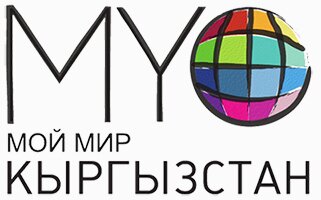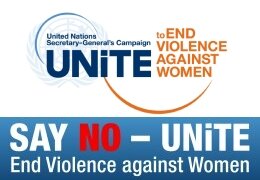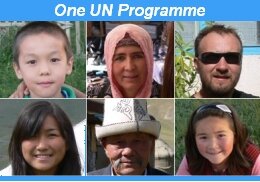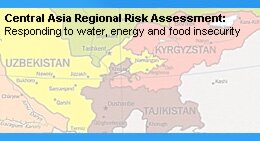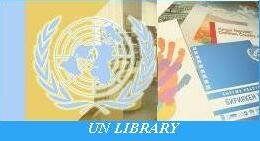| The shores of Issyk-Kul host the next generation champions of gender equality |
|
|
|
UN Women, Kyrgyzstan, Bishkek: On the 21 July 2014, more than 50 students and several teachers from seven regions of Kyrgyzstan arrived at the “Sinegorye” resort to receive coaching skills and gain knowledge on gender equality and the empowerment of girls. The activity is under a project funded by the UN Peace-building Fund at the specific request of President Atambaev. From September onwards participants who will then be 9th to 11th graders will act as peer-educators and recruit a team of peers from their school to work with during the school year. The group will identify gender inequality problems in their schools and communities, draft action plans to improve the situation, implement and report on them. After receiving information about gender inequalities, types of violence and crimes (such as bride kidnapping) participants have also been informed about progress over the ages in the struggle for human rights and gender equality. They understood that social change happens over time but needs to be led by activists and that no society is static. This is an important fact today, that some people are trying to push back human rights by referring to nebulous practices of many hundreds of years ago that sit uneasily in a modern society using the internet, motor vehicles and today’s knowledge. Participant also learned about the international conventions that protect the rights of women and girls and that are for the state to guarantee. There are a lot of issues related to stereotypes in the cities, towns and villages of origin of participants. These limit the ability of girls to participate in public life or school on the same level as boys and generally slow down or even prevent and threaten social, cultural and economic development of the country. There is no equal participation of both genders in attending to household chores, whereas this is the norm in rich European or Asian countries. However, according to girls, boys also become victims of pressure from society. If they were to agree with some of the postulates of equal participation in social activity, or help their peers of the opposite gender, boys may be mocked by those with old thinking. Hence, it can be concluded that the common stereotypes that were discussed in the groups affected boys as well - according to the well- known expression "El Emne Deit?” (what will people say?) which needs to be challenged in order to ensure social progress and facilitate prosperity and peace as it does elsewhere in the world. Students were trained on the principles of advocacy in order to positively influence the situation in their community, such as around the harmful practices of early marriage which can include sexual abuse of children, denial of legal rights to the bride and generally a much increased maternal and child mortality rates. To be effective, youth must sensitize law enforcement and religious leaders on their duties and mobilize communities against such stupid and criminal practices, also dealing with roots causes such as economic ones. These young people truly want to become agents of change and do everything possible to ensure that the world around them can become a better and fairer place to live. A student of 11th grade from the Lenin school, “Kyzyl-Suu" village of the Issyk-Kul province, Sezim Kenzhebekova noted: "During the training, first of all, I learned about my rights, information which I can distribute and to tell my friends and classmates. Help yourself, but do not forget about the others!", she said with a smile. "Now I have enough tools that will help me avoid issues like bride kidnapping and domestic violence. I could do it before as well, but now I'm more confident, because we have considered such problems on a larger scale, we have examined their consequences. The trainers gave us knowledge about the Constitution of the Kyrgyz Republic, which takes actions to protect the rights of the citizens”. An 11th grader from Pushkin school, Madina Dadaeva from Uch-Korgon village, Batken province, added: “We have heard that we are not alone and the United Nations entity - UN Women - is dealing with these problems. Currently, I am working on a project which will bring about changes in my school in terms of gendered justice. It is called ‘Stop Marriages That are Forced by Parents’. After discussing the problem with my teacher, we came to a conclusion that about 30% of female classmates are forced into arranged marriages after graduating from our high school, losing their right to continue studies later on. But I believe that we will be able to decrease this number and this will become my own small contribution to improving society!” A teacher from Yusuf Hazret school of Irdyk village, Jeti Oguz district, Yusupova Wunger says: “First of all, I would like to note the training’s simple, relevant, and interactive approach. For example, a play about bride kidnapping, performed by students, was very touching. Although we often do not witness these crimes, we were able to sympathise with victims of such an injustice and mobilise us to prevent it since this performance depicted their feelings and awful experience. The training tackled issues relevant to our community. I would like our school curriculum to include courses, which will discuss questions that were introduced in civil law studies. Sadly, the course was taken off the schedule. Personally, I have learned a lot of useful things. For instance now, I am certain that women in Kyrgyzstan can be active and that they can bring about progress. Organizations like UN Women are concerned about our future, thereby your work with society will not be done in vain. I believe there are both female and male leaders among student participants, who will promote gender equality, justice and women’s rights later on”. Dilshat Avdunov and Dilshad Mashanlo, who participated in the training, shared their concerns with us: “We have learned a lot of things that we can use in our family life. No one can use brutal force against women, and conflicts should be resolved in a peaceful way. Bride kidnapping is considered a crime and punishable as per the law. The damage by violence is done to the family unit as well as to the country as a whole. It is unpatriotic as it weakens our nation. We had never thought that violence could affect a country’s economy; this information was shocking. We have changed a lot during the last four days. If you had compared us before and after training, you would see a huge difference in our perception of violence and our willingness to take action where we see or face it”. One of them is planning to create an informal male club to promote gender equality in his community. At the same time, we questioned trainers about their seminars. Munira Noruzbaeva, a master trainer associated with UN Women, says: “I would like to say that I have found every participant to have very inspiring ideas and unique skills. Also, it is good to know that training will take place in other regions of Kyrgyzstan. Children want to be active, and we will support them in their endeavors till the end. However it will be very helpful, if local authorities could provide them with their assistance as well. I am happy that UN Women goes to remote areas to implement its projects and that all training and materials are in Kyrgyz, Russian and Uzbek’.
Shukriya Nazridod, an intern-researcher with UN Women and originally from a neighboring country noted: “I found the training to be a very effective approach towards reducing gender inequality. The participants came from various villages of Kyrgyzstan, where the gender gap is especially significant. While interviewing those young change agents, I found out that the training has opened a lot of new concepts for them, which influenced their perceptions and views. If they had considered bride kidnapping to be a ‘normal’ practice and somewhat part of their culture, after the training many understood that it is a serious crime that violates women`s rights, and that it is prosecuted by law. If we keep educating the youth about gender rights and open their eyes on the discriminatory nature of such practices, we are able to address the root causes of issues of gender inequality, which can make the future of these and subsequent generations of boys and girls brighter, both socially and economically.”
After the completion of their tasks between September and November, students will meet again on the next round of the project where they will gain more useful skills. We will keep you posted how they implemented their duties and how the next level of training played out.
|














